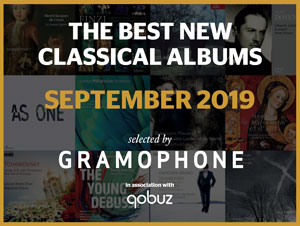Verdi: Don Carlo at the Vienna State Opera | Live Review
Mark Pullinger
Friday, September 27, 2024
Serebrennikov conducts a controversial history lesson in Vienna


⭐⭐⭐⭐
Controversial Russian theatre and film director Kirill Serebrennikov was never going to stage a dry as dust costume drama of Verdi’s Don Carlo at the Wiener Staatsoper. In 2021, while still under house arrest in Russia, he directed a jailbird Parsifal here, via video conference, which proved highly divisive. Last night, the first boo sounded before a note of the music, growing to a volley of dissent at the end of the penultimate act that held up the action, resulting in conductor Philippe Jordan signalling surrender with a white handkerchief raised on the end of his baton.
Ironically, period costume actually forms the crux of Serebrennikov’s interpretation. He was inspired by a visit to the Kyoto Costume Institute, which exhibits a collection of clothing through history but also engages in research activities. Serebrennikov sets the action in an institute in San Yuste, devoted to the preservation of clothing worn by the historical characters in Verdi’s opera. Four actors are dressed in lavish replica costumes, while the drama in the institute plays out as CEO Philip suspects Elisabetta of infidelity with young employee Carlo. Large video screens show costume detail and a wealth of historical information about the characters or their present-day counterparts when they swipe into work: 'Ana Eboli, Marketing'.
During the course of the evening (the 1884 four-act Italian version), four of the main protagonists don prototype period costumes – black with huge white stitching – as they enter their roles and begin to understand the real lives and motivations of their historical counterparts.
The exception is Posa – the only character in the opera not based on a historical figure – who here is an activist, sporting a 'Libertà' T-shirt and protesting against sweatshop conditions in garment factories. His 'death' comes not via the usual gunshot, but when he 'sells out', becoming another faceless employee, part of the system. Not all of Serebrennikov’s production makes sense – why is Posa directing his protest at Philip, who is devoted to costume research and preservation? – but it’s highly engaging and provocative.
At the opera’s denouement, the monk – often portrayed as retired Emperor Charles V – usually emerges from the gloom of the monastery of Yuste to save Don Carlo from the Spanish Inquisition. Here, the fragile costume of the emperor is taken from cold storage, crumbling to dust as the Grand Inquisitor raises it aloft.

Vocally, this was a most distinguished evening. Staatsoper darling Asmik Grigorian made her role debut as Elisabetta, a hint of steel to her tone but able to ride the long phrases that Verdi gives her with ease, particularly in ensembles. Her taxing Act 4 aria 'Tu che le vanità' was ten minutes of impassioned singing to crown an impressive evening. Roberto Tagliavini sang gloriously as Philip II, tortured by doubt in a splendid 'Ella giammai m'amò', his fine bass rolling around the auditorium. His stand-off with Dmitry Ulyanov’s stentorian Grand Inquisitor was one of the evening’s highlights
As Posa, Étienne Dupuis sang better than I’ve ever heard him before, refulgent in tone and line, making this rebel a believable character. Joshua Guerrero’s highly strung Carlo was a disappointment, often forcing his tenor too loud and injecting sobs into the vocal lines, which may be acceptable in Puccini but is really not part of true Verdi style. He has a fine voice, but less would be so much more.
French mezzo Ève-Maud Hubeaux stole the vocal honours as Eboli, the scorned princess who has her eye on Carlo (and Philip). Her imposing presence – physically and vocally – constantly drew the eye and ear. The Veil Song had all the teasing arabesques required and she delivered a knockout 'O don fatale' that truly rattled the rafters.
Despite waving the white flag, Philippe Jordan delivered a strong, rather aggressive account of the score, sometimes allowing the brass to impose themselves a little too heavily on proceedings. But there was fine individual playing, from the noble horns at the beginning to the solo cello, sighing in the introduction to Philip’s aria. The State Opera Chorus were in rousing voice for their big set piece in the auto-da-fé.
Serebrennikov was given a hostile reception, of course, at the curtain call, but revelled in it and many of the boos were drowned out by cheers. So, another divisive production, but one that provokes in an intelligent way.
Until 9 October, returning in March 2025 | wiener-staatsoper.at






